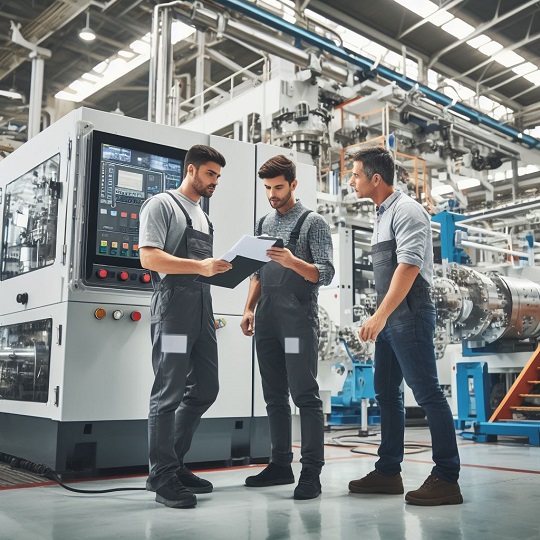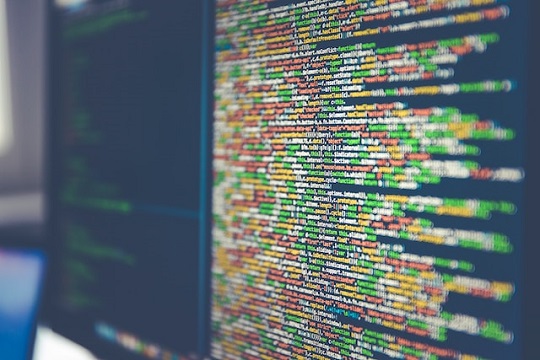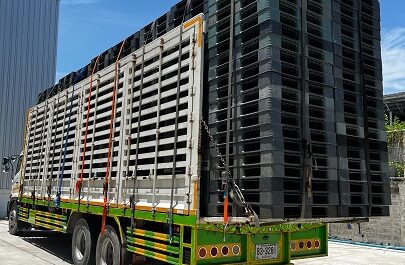In factories, it’s super important for machines to work smoothly so things get made quickly and well. Even though we take good care of them and use fancy tech, sometimes they still have problems just when we need them most, causing delays and messing up production.
Figuring out why these problems happen is key to fixing them and keeping everything running smoothly.
Here are the top 10 reasons why machines act up right when we need them.
Before we go further into this topic, don’t forget to follow my LinkedIn account. You’ll get more helpful insights on supply chain management there.
Table of Contents
Lack of Regular Maintenance
Keeping machines in good shape is super important to make sure they work well. This means doing regular maintenance tasks like cleaning, lubricating, and calibrating them. If we skip these tasks, the machines can wear out faster and break down unexpectedly.
For example, if we forget to lubricate parts, they can get too hot and wear out quickly. And if we don’t clean them properly, dirt and junk can build up and mess with how they work.
Not calibrating them right can also make them less accurate and efficient. Following a regular maintenance schedule helps prevent these problems and makes machines last longer. It also saves time and money because we catch issues early on before they become big problems.
Plus, it makes the workplace safer by reducing the chances of accidents caused by faulty machines. So, doing regular maintenance isn’t just about keeping machines in good shape; it helps businesses run smoothly and safely too.
Wear and Tear
Using production machines all the time wears them down, causing different kinds of damage over time. Common problems include loose belts, worn-out bearings, or broken parts, which can mess up how the machines work if we don’t fix them quickly.
For instance, loose belts can slip or get out of place, making the machine less efficient and causing performance ups and downs. Worn-out bearings can create more friction and shaking, making the machine run less smoothly and possibly damaging other parts nearby.
Broken parts can also make the machine less safe and productive if we don’t fix them. It’s super important to deal with these issues early to keep production machines working well. Regular checks and maintenance help us spot damage early and fix it before it gets worse.
By fixing things like loose belts or worn-out bearings right away, businesses can avoid downtime, make machines work better, and make them last longer.
Plus, taking care of problems early saves money on big repairs and makes the workplace safer by stopping unexpected breakdowns or accidents caused by damaged machine parts.
Inadequate Training
If machine operators aren’t trained well, it’s risky for both the machines and the people working with them in a factory. Without good training, operators might not know how to use the machines safely and correctly, which can lead to mistakes and mishandling. These mistakes can damage the machines, cause delays in production, and even lead to accidents at work.
Also, untrained operators might not notice or understand signs that the machines aren’t working right, like strange noises or vibrations, which could mean a breakdown is coming.
So, not having proper training not only messes up how the machines work but also makes the workplace less safe.
Having thorough training programs for machine operators is super important to deal with these problems. These programs should teach operators how to use the machines properly, do maintenance, and fix problems.
By giving operators the right skills and knowledge, businesses can make things run more smoothly, avoid downtime, and make accidents less likely.
Also, keeping operators up-to-date with ongoing training and refreshers helps them stay on top of new tech and best practices, so they can keep doing their job well and adapt to changes in the machines. Overall, investing in training and developing machine operators is key to keeping a factory safe and productive.
You might also like:
- 10 Essential Considerations Before Building a New Production Facility
- Top 10 Job Functions Suitable for Introverts in Supply Chain Management
Material Defects
The stuff we use to make things in factories really matters for how well the machines work. If we use low-quality or faulty materials, it can cause all sorts of problems with the machines.
For example, materials that aren’t the right size or have dirt in them can make the machines jam or get clogged up, stopping production and costing a lot of money in lost time.
Also, using bad materials can make the machines break down sooner because the parts can’t handle the regular work, which hurts how much we can make and how much money we can make.
To stop these issues, factories need to make sure they only use good-quality materials by checking them carefully when they come in. This means testing them to make sure they meet the right standards and working closely with suppliers who care about quality.
By using good materials, factories can make their machines last longer and work better, which helps them make more stuff and avoid expensive problems that slow things down.
Environmental Factors
The environment where machines work in factories can cause big problems for how well they run. Things like changes in temperature, humidity, and exposure to dirt and other stuff can really mess them up.
For example, when temperatures go up and down, it can make machine parts expand and contract too much, which can break them or make them not fit right. Humidity changes can make sensitive electronic parts rust or get too wet, which makes the machines less reliable.
Also, if machines get dirty inside from dust or chemicals, it can stop them from moving well and working right. If the factory doesn’t control the environment well, these problems get worse.
Without the right temperature and humidity control, machines wear out faster, work less efficiently, and break down more often.
Plus, if the factory doesn’t keep the machines clean from dirt and chemicals, they need more maintenance and stop working so much, which slows down how much stuff the factory can make and how much money it can make.
To fix these problems, the factory needs to have good systems to control the environment, like monitoring temperature and humidity and keeping dirt out of the machines. This helps the machines work better and last longer, which helps the factory make more stuff and stay profitable.
Overloading
Running production machines too hard can really hurt how well they work and how long they last. When we push machines past what they’re meant to do, they get stressed out and can break down faster. Overloading them can make important parts like motors, bearings, and gears wear out quicker than they should.
Also, making machines do too much can make them get too hot, create more friction, and work less efficiently, which makes them less reliable and productive.

To stop this from happening, we need to manage how much work we give the machines and stick to the limits they’re designed for. This means planning production schedules carefully to spread the work evenly across machines and not overloading any of them.
Also, operators need to be trained to use the machines right and understand how important it is to follow the rules about how much they can handle and how fast they can go.
By doing these things, businesses can avoid overloading the machines, make them last longer, and keep making stuff at a steady pace in the factory.
Obsolete Technology
Using old, outdated technology in production machines makes things tough in factories. This old tech doesn’t work as well because it doesn’t have all the cool new features and it’s harder to fix when it breaks.
Finding replacement parts for old stuff gets harder as time goes on, which means the machines stay broken longer and cost more to fix.
Plus, there’s usually no help available from the manufacturers because they’ve moved on to newer stuff. Switching to newer machines is a good way to fix these problems and make manufacturing run better.
New machines have better features that make them work faster and more accurately.
Also, the companies that make new machines usually have good support and can easily get replacement parts, which means less time wasted fixing things and more time making stuff.
Investing in upgrades helps businesses stay competitive and ready for changes in the industry. Plus, new machines often have cool features like automation and predictive maintenance, which make things even more efficient and stop unexpected breakdowns.
You might also like:
- Top 10 Production Planning Best Practices for Success
- Crafting Your Perfect Production Plan: Let’s Dive In!
Software Glitches
In modern factories where machines work automatically, software is super important for making sure everything runs smoothly. But sometimes, the software can mess up and cause problems, like machines stopping unexpectedly or not working as well. This can happen because of mistakes in the programming, issues with compatibility, or even cyber attacks.

To stop these problems from happening, it’s really important to keep the software updated and maintained. This means getting the latest versions and fixes to make sure everything keeps working right.
By doing this, businesses can avoid problems with the software that might make the machines stop working or make them less reliable.
Also, by keeping the software in good shape, businesses can make the machines work better over time. This includes making sure the software is set up in the best way to make things run smoothly and quickly.
Plus, updating the software often adds new features that help businesses keep up with changes in manufacturing.
So, investing in regular updates and maintenance for the software is key to making sure the machines stay working well and the factory stays profitable.
Inadequate Monitoring and Diagnostics
Not keeping a close eye on how machines are doing and not having good systems to find problems early on can cause big issues in factories. Without good monitoring, problems with the machines might not get noticed until they’re really bad, which can stop production unexpectedly and make things take longer to get done.
Plus, not knowing how the machines are doing in real-time makes it hard to fix problems before they cause big issues. This means waiting for things to break before fixing them, which costs a lot of money and makes the factory less productive.
To fix these problems, it’s important to use technology that monitors the machines all the time and can predict when they need maintenance. These systems check how the machines are doing and can spot problems early by looking at data from sensors.
By doing this, businesses can fix problems before they get bad, which helps keep production going, saves money on repairs, and makes the machines last longer.
So, investing in these technologies is super important for making sure the machines work well, keeping production going smoothly, and making the factory as productive as possible.
Poor Planning and Scheduling
If production planning isn’t done well in factories, it can really mess up how well the machines work and how long they last. When schedules aren’t organized properly, machines might be used too much or pushed too hard, which makes them wear out faster and more likely to break down.

Plus, if there isn’t enough time set aside for maintenance and repairs, problems with the machines can get worse over time and cause even bigger issues down the road.
Also, not having enough resources set aside for repairs because of bad planning can make downtime longer and delay fixing the machines, which makes production schedules get messed up and the factory less efficient.
To stop these problems, it’s important to plan production in a smart way that includes time for maintenance and breaks for the machines.
By doing this, businesses can fix problems before they happen, which makes the machines last longer and keeps production going smoothly.
Also, planning production well means making sure there’s enough money and resources set aside for fixing the machines quickly when they need it.
Overall, planning production in a smart way that focuses on keeping the machines in good shape and managing their downtime is really important for making the factory run as efficiently as possible.
Conclusion
To fix these top 10 reasons, we need to take a big-picture approach.
This means doing things like planning ahead for maintenance, training operators well, upgrading technology, and planning production smartly.
By dealing with problems before they happen, factories can keep things running smoothly, make the machines work better, and keep making stuff without any hiccups.
Overall, investing in prevention helps cut downtime and repair costs, makes production better, and helps factories stay competitive in the manufacturing world.
I hope you find it helpful!
Please share this article with your colleagues so they can also benefit. For more insights on supply chain management, follow my LinkedIn account. You’re free to use all articles on this blog for any purpose, even for commercial use, without needing to give credit.
 by
by 